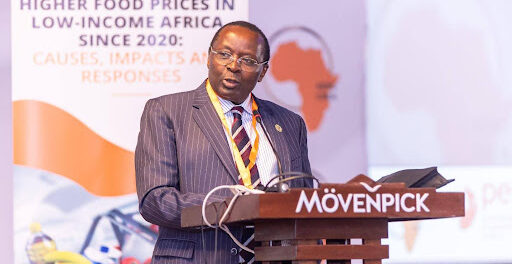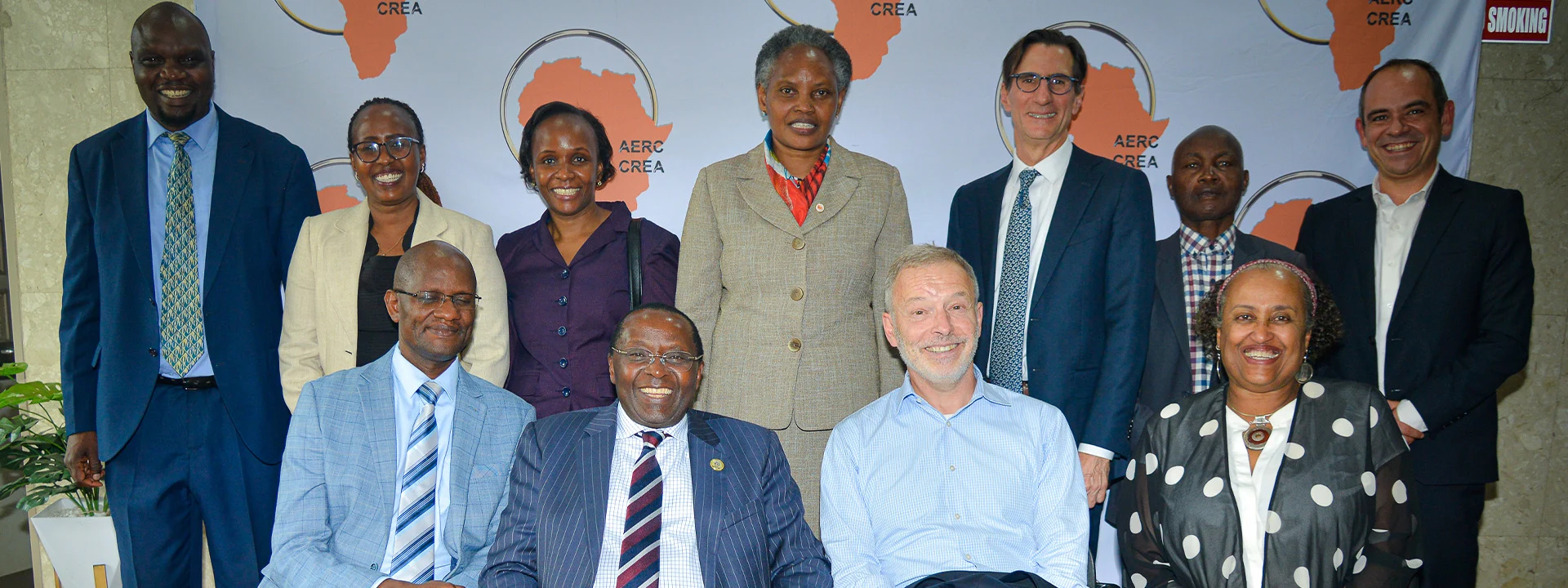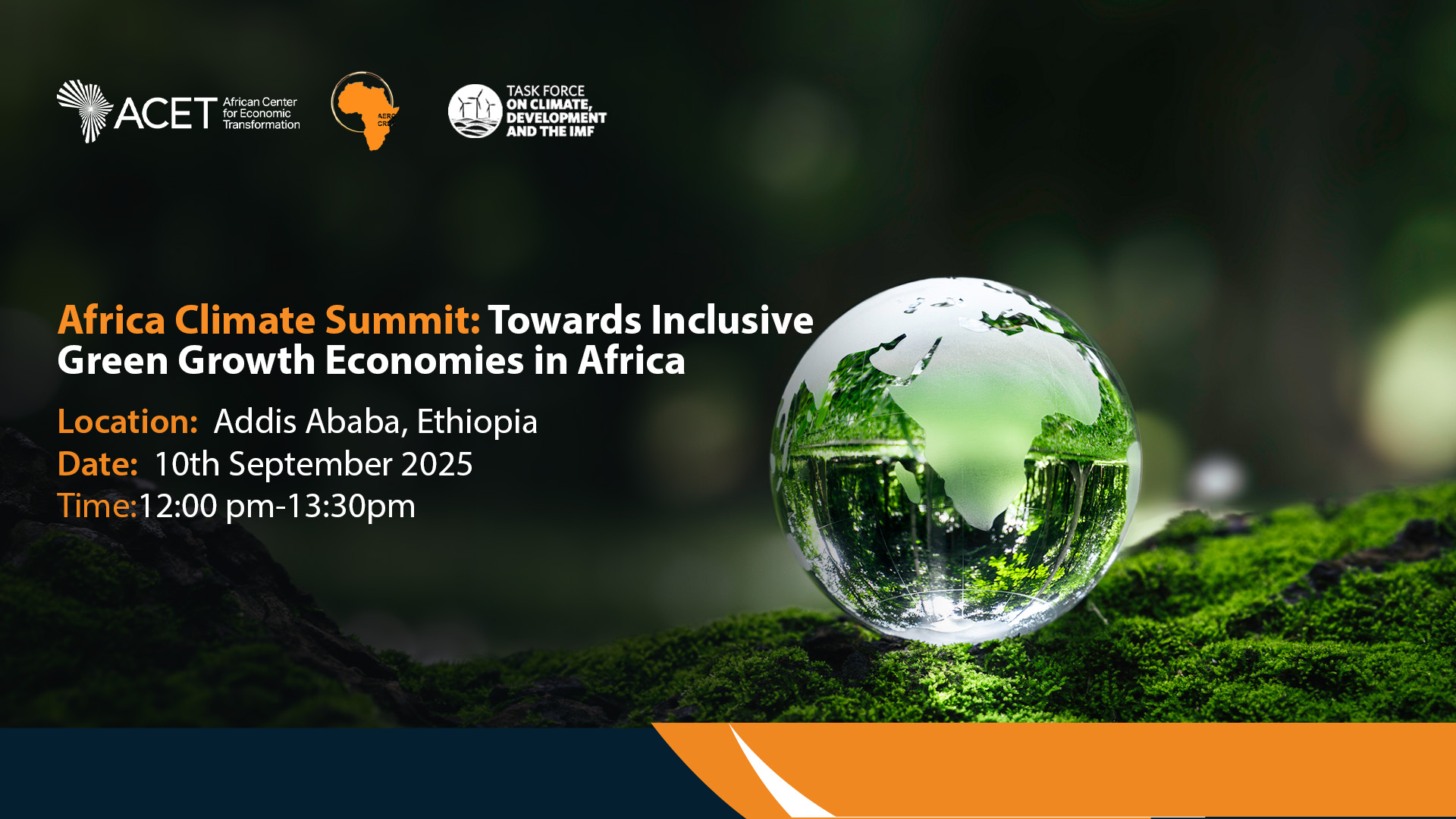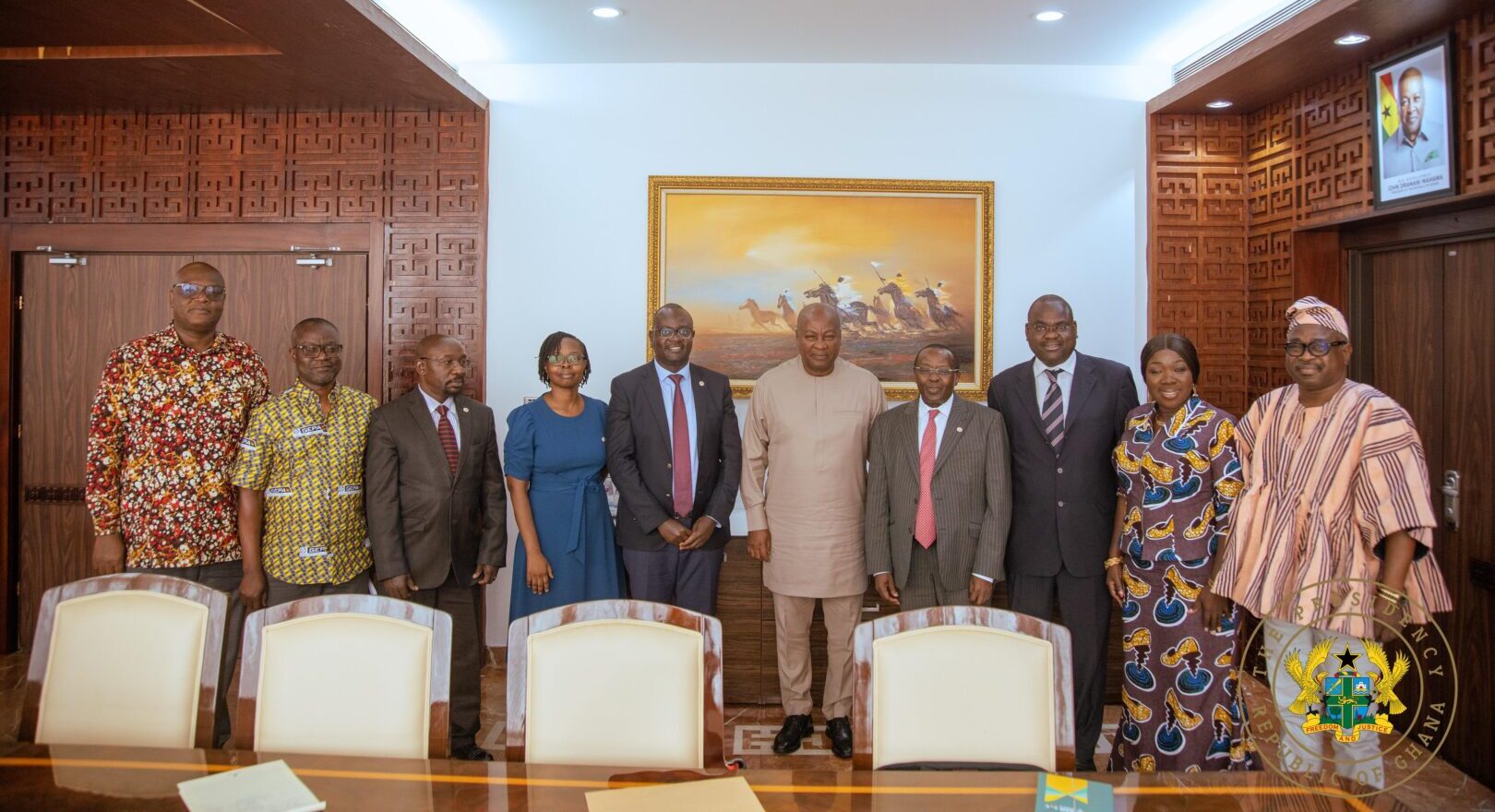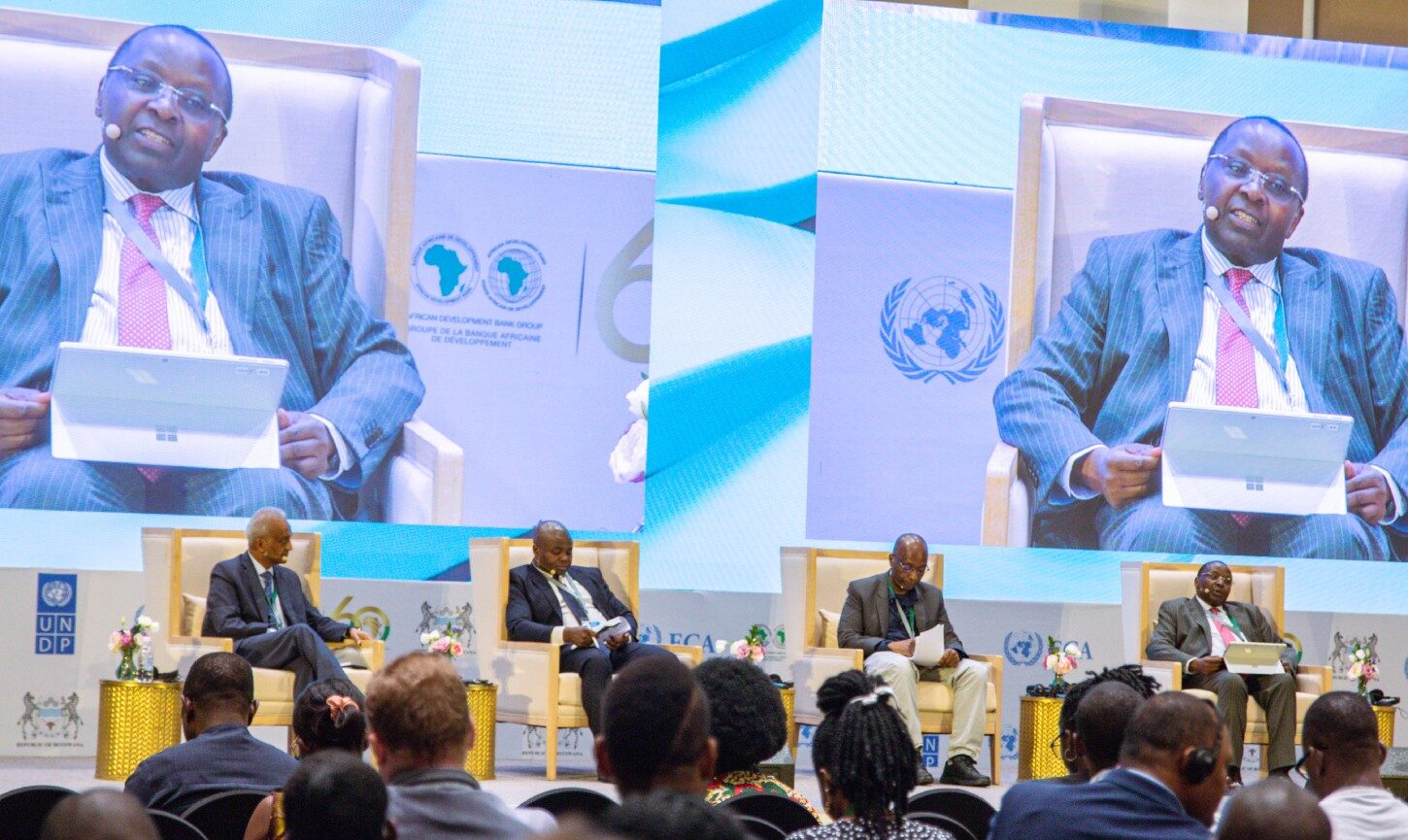

AERC contributes to Policy Dialogue at the African Economic Conference 2024 in Botswana
November 27, 2024The African Economic Research Consortium (AERC) engaged with policy experts at the African Economic Conference (AEC) 2024 with Prof. Victor Murinde, the AERC Executive Director, participating as a panelist in two high level policy dialogue sessions. The first session featured an interactive discussion on the urgent need to reform the global financial architecture (GFA) to achieve global and regional economic stability. Critical aspects such as debt relief initiative, global financial regulation, innovative development finance, and inclusive and effective international tax cooperation were discussed. The second session focused on ensuring stability and growth amidst regional and global uncertainties, such as the Euro debt crisis, Brexit, the US-China trade tensions, the COVID-19 pandemic and the Russia-Ukraine conflict. Discussions considered how global uncertainties impact sectoral investments and economic performance across African countries, with a focus on the difference income levels and tailored strategies to enhance stability and growthy. The AEC2024 was held in Gaborone, Botswana, from 23-25 November 2024.
The President of the Republic of Botswana, His Excellency, Duma Gideon Boko, delivered the keynote address. He observed that Africa is rich in natural resources, and it is, therefore, critical to develop and strengthen value chains systems for value addition to the continent’s vast natural resources to prioritize their use. Not only will this diversify the African economy enormously but will also create more jobs. President Duma Boko was accompanied by Hon. Phenyo Butale, the Minister of International Relations, who delivered the welcoming address.
The President emphasized that Africa is blessed with a young and vibrant population, which is a tremendous asset, that if invested in wisely can result to an enormous demographic dividend. “Our young people are the innovators, entrepreneurs, and leaders of tomorrow, who will drive our economic growth and create inclusive, resilient societies. We must, consequently, prioritize investments in their education and equip them with the necessary skills to be able to drive innovation and build a workforce capable of thriving in the digital economy,” he said.
“Peace and stability in Africa must be anchored on accountable and responsive governance,” the President said, adding that, “This is a fundamental human right for every African citizen. It sets the requisite bedrock for any form of measure for our economic development and its sustainability.” He called on African countries to strengthen democracy and uphold the rule of law. Africa’s economic success and sustainability are intrinsically linked to accountable governance, President, Duma Boko, stressed during the official opening session.
Prof. Victor Murinde, in one of his presentations, said that Africa’s debt stocks have grown significantly in the past decade adding that as a percentage of Gross Domestic Product (GDP), Africa’s share of external debt has risen to 28%. In the post-COVID-19 economic landscape, Africa’s debt challenges have become an increasing barrier to development. External debt has risen to about US$566 billion, and debt servicing costs have gone up further, limiting investments in critical areas. “The global debt architecture is not well-suited to the needs of African countries,” he said.
The composition of African debt has changed significantly. Previously, most of the African external debt was owed to official creditors – high-income countries and multilateral lenders like the World Bank and International Monetary Fund (IMF). Now, China and private creditors make up a large proportion of debt stocks, meaning more debt is non-concessional, observed Prof. Murinde.
Other key speakers during the conference included: Mr. Claver Gatete, Executive Secretary, United Nations Economic Commission for Africa (ECA); Prof. Kevin Urama, Chief Economist and Vice-President, African Development Bank Group (AfDB); Ms. Ahunna Eziakonwa, Assistant Secretary General and Director Regional Bureau for Africa, United Nations Development Programme (UNDP); Dr. Raymond Gilpin, Chief Economist and Head of Strategy, Analysis, and Research Team, Regional Bureau for Africa, (UNDP); Dr. Hanan Morsy, Deputy Executive Secretary and Chief Economist, (ECA) and Nobel Prize Laureate Abhijit Vinayak Banerjee, The Ford Foundation International Professor of Economics at the Massachusetts Institute of Technology among other dignitaries.
The African Development Bank Group (AfDB) used the occasion to announce its Ten-Year Strategy 2024-2033, themed “Seizing Africa’s opportunities for a prosperous, inclusive, resilient, and integrated continent”. The strategy notes that after a decade of strong economic performance, countries across Africa have shown great resilience. But the continent must deal with a set of interlocking crises – some global, others originating within the continent – that threaten to undermine its hard-won gains.
Africa has emerged from the Covid-19 pandemic only to confront worsening food insecurity and a growing debt crisis. The impacts of climate change are intensifying and accelerating. Conflict and political instability have surged, while the youthful working age population continues to grow at a faster pace than jobs. With limited opportunities in their home countries, millions of Africa’s young people, the continent’s future, are seeking economic opportunities in other regions. These accumulating crises threaten to trap Africa in a cycle of emergency response. Thus, the continent urgently needs to shift resources into building sustainable and resilient growth that delivers jobs and equity, the strategy emphasizes.
The African Economic Conference (AEC) 2024, with the theme: “Securing Africa’s Economic Future Amidst Rising Uncertainty,” was jointly organized by the African Development Bank (AfDB), the Economic Commission for Africa (ECA), and the United Nations Development Programme (UNDP).


